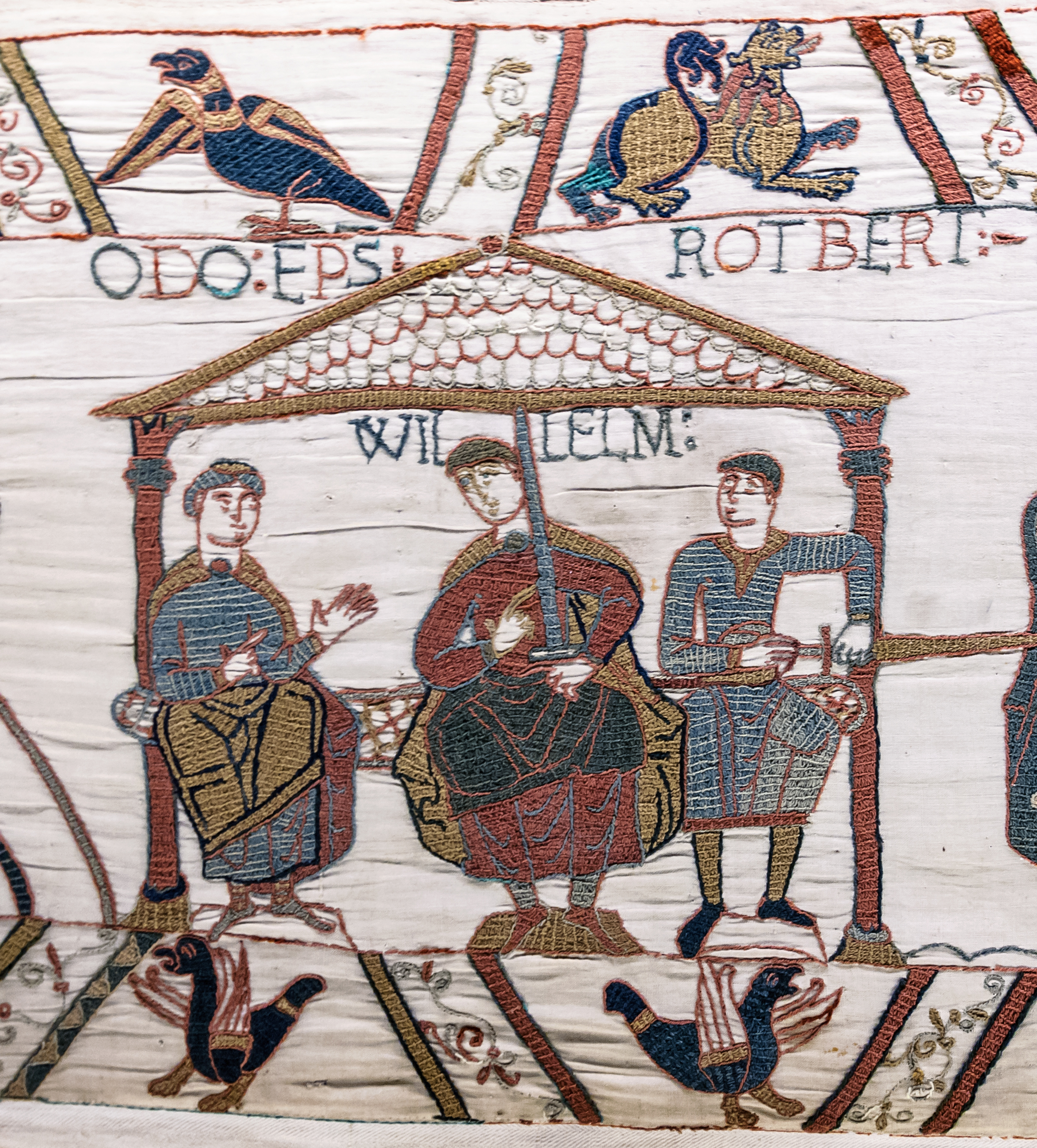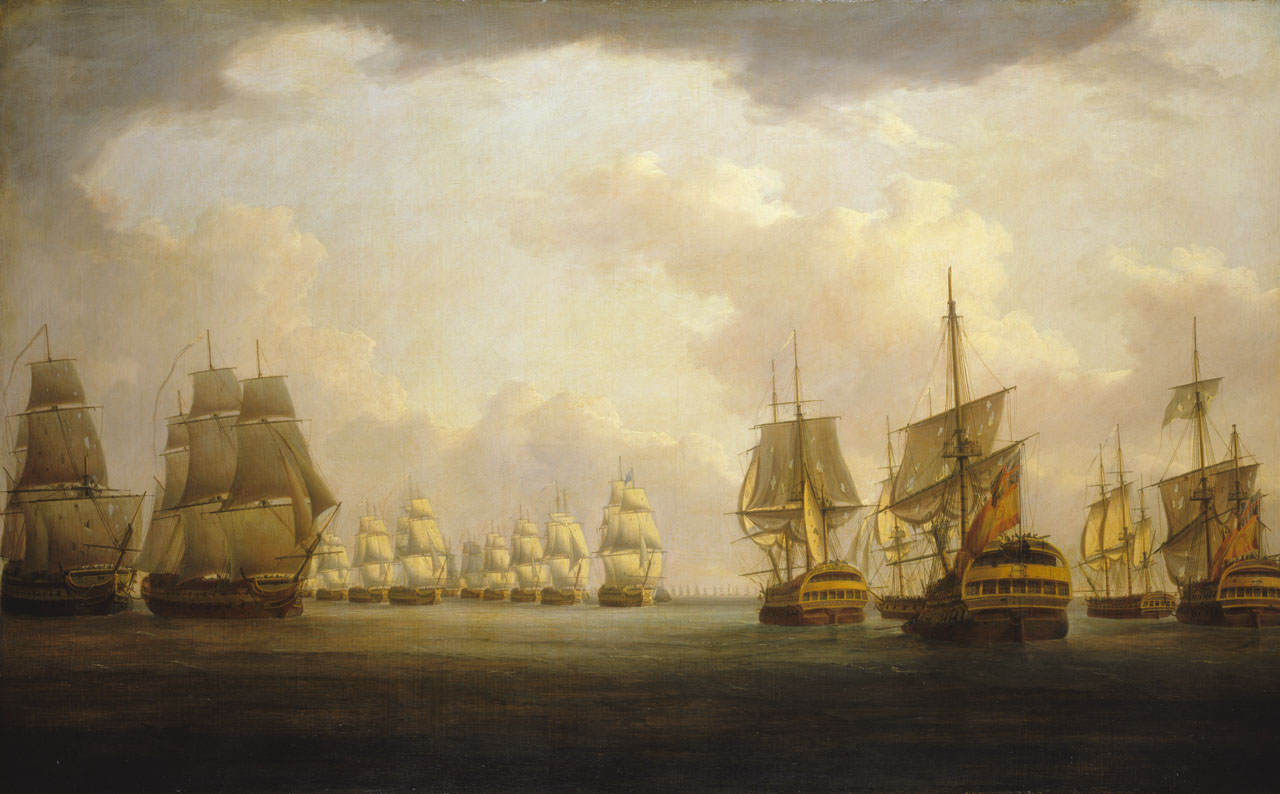|
Trenant Park
Trenant Park is a Grade II listed country house in the civil parish of Duloe in east Cornwall, England, UK. It is surrounded by a large park and woodland. It is sited on a tongue of land between the East and West Looe rivers. The house was possibly built in the early 17th century, remodelled in the early 18th century, extended in the mid 19th century and divided into flats in the 20th century. The manor of Trenant was recorded in the Domesday Book (1086) when it was held by Osferth from Robert, Count of Mortain. He had also held it before 1066 and paid tax for 1 virgate of land. There was half a hide of land and land for 8 ploughs. There were 2 ploughs, 2 serfs, 4 villeins, 12 smallholders, 6 acres of woodland, 40 acres of pasture, 2 cows, 2 pigs and 8 goats. The value of the manor was 15 shillings though it had formerly been worth £3 sterling. The manor belonged at various times to the families of Hewis, Colshull, Arundell, Whittington, Treise and Morshead. In 1806 it was sold ... [...More Info...] [...Related Items...] OR: [Wikipedia] [Google] [Baidu] |
West Looe River And Trenant Wood
West or Occident is one of the four cardinal directions or points of the compass. It is the opposite direction from east and is the direction in which the Sun sets on the Earth. Etymology The word "west" is a Germanic word passed into some Romance languages (''ouest'' in French, ''oest'' in Catalan, ''ovest'' in Italian, ''oeste'' in Spanish and Portuguese). As in other languages, the word formation stems from the fact that west is the direction of the setting sun in the evening: 'west' derives from the Indo-European root ''*wes'' reduced from ''*wes-pero'' 'evening, night', cognate with Ancient Greek ἕσπερος hesperos 'evening; evening star; western' and Latin vesper 'evening; west'. Examples of the same formation in other languages include Latin occidens 'west' from occidō 'to go down, to set' and Hebrew מַעֲרָב maarav 'west' from עֶרֶב erev 'evening'. Navigation To go west using a compass for navigation (in a place where magnetic north is the same dire ... [...More Info...] [...Related Items...] OR: [Wikipedia] [Google] [Baidu] |
Duloe, Cornwall
Duloe ( kw, Dewlogh (Eng. 'Two Rivers')) is a village and civil parish in Cornwall, England, United Kingdom. It is situated approximately four miles (6 km) south of Liskeard at . The village of Herodsfoot and the hamlets of Churchbridge, Highercliff, Milcombe, Tredinnick, Trefanny Hill, Tregarlandbridge and Tregarrick Mill are also in the parish. The manors of Brodbane, Trenant, Lanwarnick, Killigorick and Tremadart are mentioned in the Domesday Book (1086). Parish church The parish church of Duloe is dedicated to St Cuby and St Leonard and was built in early medieval times. Its plan is unusual since the tower is at the end of the south transept. The tower is 13th century and an upper stage was added in the Perpendicular style. However this stage was removed in 1861. (There is now no access to the tower from the transept as the archway between was blocked up at an early date.) There is a north aisle which continues eastwards to form a chancel aisle which is grander ... [...More Info...] [...Related Items...] OR: [Wikipedia] [Google] [Baidu] |
Robert, Count Of Mortain
Robert, Count of Mortain, 2nd Earl of Cornwall (–) was a Norman nobleman and the half-brother (on their mother's side) of King William the Conqueror. He was one of the very few proven companions of William the Conqueror at the Battle of Hastings and as recorded in the Domesday Book of 1086 was one of the greatest landholders in his half-brother's new Kingdom of England. Life Robert was the son of Herluin de Conteville and Herleva of Falaise and brother of Odo of Bayeux.Detlev Schwennicke, ''Europäische Stammtafeln: Stammtafeln zur Geschichte der Europäischen Staaten'', Neue Folge, Band III Teilband 4 (Marburg, Germany: Verlag von J. A. Stargardt, 1989), Tafel 694B Robert was born in Normandy, a half-brother of William the Conqueror. and was probably not more than a year or so younger than his brother Odo, born . About 1035, Herluin, as Vicomte of Conteville, along with his wife Herleva and Robert, founded Grestain Abbey. Count of Mortain Around 1049 his brother Duke Willia ... [...More Info...] [...Related Items...] OR: [Wikipedia] [Google] [Baidu] |
Sir Edward Buller, 1st Baronet
Sir Edward Buller, 1st Baronet (24 December 1764 – 15 April 1824) was an officer of the Royal Navy who served during the American War of Independence and the French Revolutionary and Napoleonic Wars. Buller was born into a prominent West country family in 1764 and began his naval career twelve years later, serving with Lord Mulgrave during the American War of Independence. He initially saw action at the Battle of Ushant in 1778, before travelling to the East Indies with Sir Edward Hughes and participating in several of the engagements with the Bailli de Suffren. Appointed to his first command during his time off India, Buller narrowly survived a hurricane and a hazardous journey back to Britain. He commanded a sloop off the North American coast after the end of the war, and received his promotion to post-captain in 1790. Buller spent the early years of the French Revolutionary Wars escorting convoys and serving on the Cape of Good Hope, before returning to Britain and spe ... [...More Info...] [...Related Items...] OR: [Wikipedia] [Google] [Baidu] |
Buller Baronets
There have been two Buller baronetcies. The baronetcy of Buller (later Buller-Yarde, Buller-Yarde-Buller and Yarde-Buller), of Churston Court, Devon, was created in the Baronetage of Great Britain on 13 January 1790 for Francis Buller. The second baronet assumed by Royal licence the surname of Yarde in 1800. The third baronet, Sir John Yarde-Buller, was created Baron Churston in 1858, with which title the baronetcy remains merged. The baronetcy of Buller, of Trenant Park, Cornwall, was created in the Baronetage of the United Kingdom on 3 October 1808 for Rear-Admiral Edward Buller. It became extinct on his death in 1824. Buller (later Buller-Yarde, Buller-Yarde-Buller and Yarde-Buller), of Churston Court (1790) *Sir Francis Buller, 1st Baronet (1746–1800) *Sir Francis Buller-Yarde-Buller, 2nd Baronet (1767–1833) * Sir John Yarde-Buller, 3rd Baronet (1799–1871) (created Baron Churston in 1858) For later succession see Baron Churston. Buller, of Trenant Park (1808 ... [...More Info...] [...Related Items...] OR: [Wikipedia] [Google] [Baidu] |
Morshead Baronets
The Morshead Baronetcy, of Trenant Park in the County of Cornwall, was a title in the Baronetage of Great Britain. It was created on 22 January 1784 for John Morshead, Member of Parliament for Callington and Bodmin and Lord Warden of the Stannaries. The title became extinct on the death of the third Baronet in 1905. Morshead baronets, of Trenant Park (1784) *Sir John Morshead, 1st Baronet ''Sir'' is a formal honorific address in English for men, derived from Sire in the High Middle Ages. Both are derived from the old French "Sieur" (Lord), brought to England by the French-speaking Normans, and which now exist in French only as ... (1747–1813) *Sir Frederick Treise Morshead, 2nd Baronet (1783–1828) *Sir Warwick Charles Morshead, 3rd Baronet (1824–1905) References * {{DEFAULTSORT:Morshead Extinct baronetcies in the Baronetage of Great Britain ... [...More Info...] [...Related Items...] OR: [Wikipedia] [Google] [Baidu] |
Country Houses In Cornwall
A country is a distinct part of the world, such as a state, nation, or other political entity. It may be a sovereign state or make up one part of a larger state. For example, the country of Japan is an independent, sovereign state, while the country of Wales is a component of a multi-part sovereign state, the United Kingdom. A country may be a historically sovereign area (such as Korea), a currently sovereign territory with a unified government (such as Senegal), or a non-sovereign geographic region associated with certain distinct political, ethnic, or cultural characteristics (such as the Basque Country). The definition and usage of the word "country" is flexible and has changed over time. ''The Economist'' wrote in 2010 that "any attempt to find a clear definition of a country soon runs into a thicket of exceptions and anomalies." Most sovereign states, but not all countries, are members of the United Nations. The largest country by area is Russia, while the smallest is ... [...More Info...] [...Related Items...] OR: [Wikipedia] [Google] [Baidu] |




